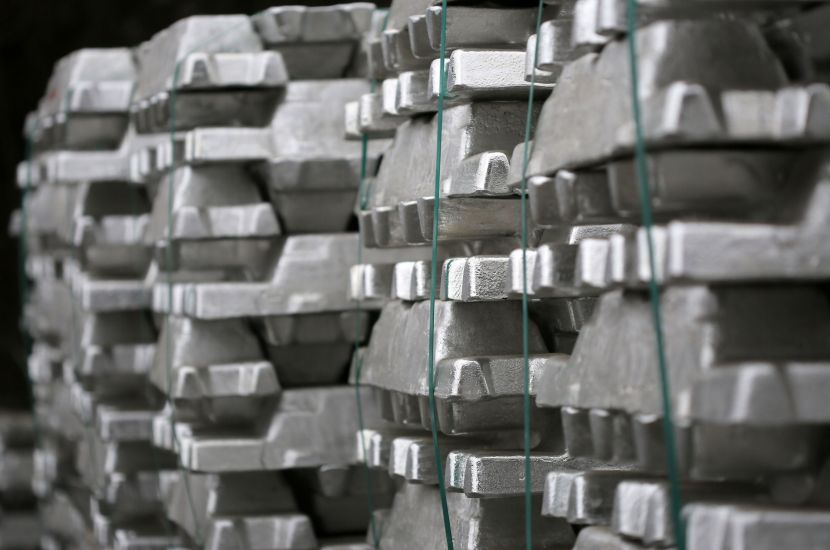Metal prices have been significantly impacted by the weak recovery of China’s economy, signaling potential challenges for the global mineral markets. As Asia’s largest economy, China has played a crucial role in supporting the mineral markets for the past few decades, driven by its rapid infrastructure development. However, the country’s slow post-virus recovery suggests that it may lack the necessary capacity to sustain global demand as it transitions into a more services-focused economy.
The effects of China’s economic transition have become evident in the markets this year, with the value of most metals experiencing a decline, even after Beijing abandoned its “zero Covid” policy at the end of last year. This shift in China’s economic landscape has raised concerns about the future of metal markets, particularly as the country’s demand for metals continues to decline.
Iron ore, a staple in the steel industry, has been particularly affected by China’s weak recovery. The price of iron ore fell by 0.7% to $110.85 at 12:46 PM Singapore time on Friday, resulting in a weekly loss of 2.3%. This decline has erased all the gains made earlier in the year, reflecting fading optimism about China’s recovery.
Copper prices have also been impacted, falling by 0.5% to $8,534 a ton on the London Metal Exchange. Despite the slight increase in the main industrial crude since the beginning of the year, aluminum prices have continued their downward trajectory, experiencing a 3% decline during the week. This downward trend in metal prices further highlights the challenges faced by the industry due to declining demand in China.
The weak recovery of China’s economy has raised concerns among experts and analysts. Jefferies, a global investment banking firm, has expressed its apprehension about the impact of China’s economic transition on metal prices. The slow recovery and declining demand in China could have significant implications for the global metal markets, potentially leading to further price declines and market volatility.
As the summer progresses, metal markets are expected to face a tough period due to the declining demand in China. The outcome of China’s economic transition and its ability to support global demand will be closely monitored by industry players and investors. The future of metal prices will depend on China’s ability to navigate its economic transition successfully and regain its position as a critical supporter of the mineral markets.
In conclusion, the weak recovery of China’s economy has had a significant impact on metal prices, with declining demand in the country causing prices to fall. As China transitions into a more services-focused economy, concerns arise about its capacity to support global demand and the future of the mineral markets. The decline in iron ore, copper, and aluminum prices reflects the challenges faced by the industry. The coming months will be crucial in determining the trajectory of metal prices as China’s economic transition unfolds.
How has China’s slowdown in steel production in 2021 affected the demand and prices of copper and aluminum?
In 2021, reflecting the slowdown in China’s steel production. The decrease in demand for iron ore in China has had a ripple effect on other minerals, such as copper and aluminum, which are also used extensively in infrastructure projects.
Copper prices, for example, have experienced a significant decline, with futures dropping 4% in July, driven by concerns over China’s weakening demand. The country is the largest consumer of copper, accounting for nearly half of the global consumption. As China’s economy shifts from manufacturing to services, the demand for copper, used in electrical wiring, plumbing, and construction, is expected to decrease further.
Similarly, aluminum prices have also been affected by China’s economic slowdown. With China being the world’s largest producer and consumer of aluminum, any decrease in demand has a significant impact on global prices. In July, aluminum prices dropped by 10%, the largest decline in a decade.
The weak recovery of China’s economy is a cause for concern for the global mineral markets. As China transitions to a more services-focused economy, the demand for metals, particularly those used in infrastructure and manufacturing, is expected to decline. This shift in demand could result in an oversupply of metals and a further drop in prices.
However, it is important to note that China’s economic slowdown is not the only factor influencing metal prices. Other global factors, such as supply chain disruptions, geopolitical tensions, and environmental regulations, also play a role in determining metal prices.
In conclusion, China’s weak recovery and transition to a more services-focused economy have impacted metal prices, signaling potential challenges for the global mineral markets. The decline in demand for metals, particularly iron ore, copper, and aluminum, has resulted in a decrease in prices. While China’s economic slowdown is a cause for concern, it is essential to consider other global factors that contribute to fluctuations in metal prices.



The impact of China’s weak recovery on declining metal prices highlights the interconnectedness of the global economy. As the largest consumer of metals, China’s reduced demand has far-reaching consequences for producers across the world. This situation calls for strategic measures to stabilize both China’s recovery and global metal prices.